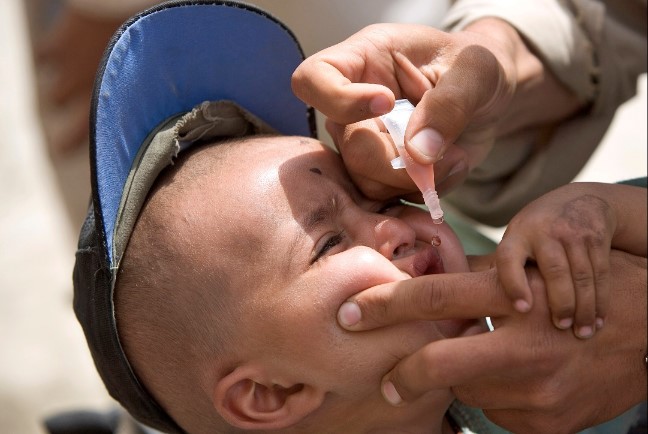KUALA LUMPUR, Dec 26 — The World Health Organization (WHO) urged Malaysia, the Philippines, Indonesia, and Myanmar to officially declare a national public health emergency over their recent polio outbreaks.
WHO noted that the spread of the vaccine-derived poliovirus type 1 (cVDPV1) from the Philippines to Malaysia, as well as other recent documented spreads of cVDPV2 among other countries, was “unusual”, as international spread of cVDPV in the past has been “very infrequent”.
“The risk of new outbreaks in new countries is considered extremely high, even probable,” it said in a statement last Friday, following the 23rd meeting of the Emergency Committee under the International Health Regulations (2005) in Geneva, Switzerland, on December 11 regarding the international spread of polio.
“The outbreak of cVDPV1 in Malaysia in a cross-border population shared between Malaysia, (the) Philippines and Indonesia and which is often unreached by government immunisation programmes is an example of how border populations are at special risk,” the statement by the United Nations (UN) public health agency read.
WHO said Malaysia, Indonesia, Myanmar and the Philippines — which have all detected cVDPV1 from February to October this year — should implement, at the national and state levels, all required measures to support polio eradication.
It added that in countries where such an emergency declaration has already been made, the emergency status should be maintained as long as the response is required. An emergency declaration has not been carried out by the Malaysian government yet, with Deputy Minister Dr Lee Boon Chye saying recently that the Ministry of Health (MOH) was hopeful of containing polio from spreading in the country.
Health director-general Dr Noor Hisham Abdullah announced on December 8 that a three-month-old Malaysian baby boy from Tuaran, Sabah, became the first reported polio case in Malaysia 27 years after the last case in 1992, and 19 years after Malaysia was declared polio-free in 2000. According to WHO, the cVDPV1 polio virus was detected in Malaysia last October 26.
Tests showed the boy was infected with a polio strain that shared genetic links with the virus detected in the Philippine cases, which has since reported an eighth case of polio.
Polio, which mainly affects children below five years of age, invades the nervous system and can cause total paralysis in hours. There is no cure for polio, but it can be prevented through vaccination.
MOH has since vaccinated all children aged between two months and five years in the Tuaran village — local, undocumented and foreign — as well as other high-risk spots which undocumented children frequent in the state. However, MOH is firm on its stance of not making vaccination compulsory for the time being, so long as the national immunisation programme is underway, but is still discussing the matter.
WHO, meanwhile, said Malaysia, Indonesia, Myanmar, and the Philippines must ensure that all residents and long-term visitors — those who stay in the country for more than four weeks — of all ages, receive a dose of bivalent oral poliovirus vaccine (bOPV) or inactivated poliovirus vaccine (IPV) between four weeks and 12 months prior to international travel.
It also recommended that those undertaking urgent travel from these countries — within four weeks — and who have not received a dose of bOPV or IPV in the last four weeks to 12 months, receive a dose of polio vaccine at least by the time of departure as it will still provide benefit, particularly for frequent travelers.
Besides this, WHO proposed that these travelers be provided with an International Certificate of Vaccination or Prophylaxis to record their polio vaccination and serve as proof of vaccination, while those who lack documentation of appropriate polio vaccination should be restricted at all points of departure, irrespective of the means of conveyance through road, air, or sea.
WHO added that these recommendations should be in place for six months at least with no reported infections, and until there is documentation of full application of high quality eradication activities in all infected and high-risk areas. But WHO also proposed that these measures be maintained for an additional three months, as the risk of international spread of the polio virus remains a Public Health Emergency of International Concern (PHEIC).
“The committee recognises the concerns regarding the lengthy duration of the polio PHEIC, but concludes that the current situation is extraordinary, with clear ongoing risk of international spread and ongoing need for coordinated international response,” it noted.
WHO added that the committee remains gravely concerned by the significant increase in wild poliovirus (WPV1) cases globally to 113 as at 11 December 2019, compared to 28 for the same period in 2018, with no significant success yet in reversing this trend.








